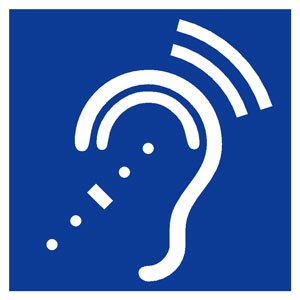Thieves broke into the local movie theater and stole $240.
They took a bag of popcorn and a large drink.
I kid. Who doesn’t love going to the movie theater on a dreary Portland day? While most of us would be excited for the opportunity to waste away an afternoon, if you are one of the 48 million Americans with hearing loss you probably are less thrilled about this plan.
Movies theaters are full of distracting sounds. Even if you do utilize a hearing aid, the mix of surround sound, noisy patrons and kids talking create a seemingly impossible task – to enjoy the movies.
The good news is that all modern-day theaters are equipped with an assistive listening system that can change how those with a hearing aid enjoy the show. There are three types of assistive listening systems: FM, infrared and hearing loops. A hearing loop is the most common system for large theaters. This system is made up of three parts: a sound source, an amplifier and a thin loop of wire that surrounds the whole room. As long as you are within the wire loop, the sound is picked up by the amplifier and passed through electromagnetic energy to your hearing aid.
A telecoil (or t-coil) is required for all three of these systems to work. Most modern day hearings aids come telecoil equipped. The telecoil is a small coil of wire that works as a wireless receiver. It picks up the electromagnetic signals and turns those signals back into sound within the hearing aid.
We all know in Portland, Oregon that small, local theaters outnumber the large chains. Many might think that these independent theaters do not have the means or interest to install one of these systems. You would be wrong. The Americans with Disabilities Act requires that all places of public accommodation with fixed seating that either accommodate at least 50 people or have an audio amplification system (or both) must provide an assistive listening system. This means your theater must have a system in place. It is your responsibility to confirm which type your theater uses in order to make sure your device is compatible.
Before you head out, make sure to check the theater’s website or give them a call. This way you can determine which system they have and make sure you have the correct equipment to connect to it. Many theaters have extra equipment on-site.
Don’t let your hearing impairment slow you down. If you have any questions about how to get the most from your hearing aid, contact your Portland audiologist.





